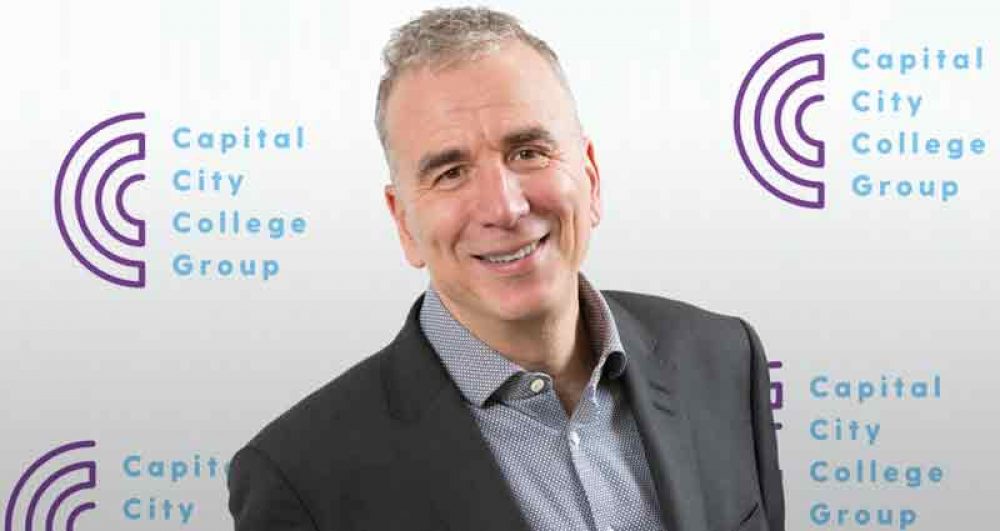London’s biggest college group has spread itself even further across the capital with another merger, and it is looking at yet more growth with an institute of technology.
The Capital City College Group formed in August 2016 when City and Islington College merged with Westminster Kingsway College, rated grade one and two respectively. It also includes Capital City College Training, which was launched by CCCG earlier this year and provides around 100 apprenticeship programmes to organisations located in London.
The group has expanded again today, merging with the grade two-rated College of Haringey, Enfield and North East London.
It’s chief executive Andy Wilson (pictured) spoke enthusiastically about the long-term security economies of scale will provide members of the mega-college, which is expected to teach 37,000 students each year, employ 1,700 staff and spend an annual budget approaching £110 million.
“We are all very excited to be bringing together three of London’s most successful colleges to create a technical education and training powerhouse and a regional college for the city,” he said.
“It will transform its FE sector by delivering exceptional benefits to local communities and businesses. I think we’re creating something that will really help future-proof FE for this region.”
He also revealed details of a planned new institute of technology specialising in life sciences.
The government called on providers to register an interest in launching an IoTs last month.
Much like the ill-fated Centres of Vocational Excellence (CoVE) scheme for colleges launched during the days of the Learning and Skills Council, it is expected that funding for new equipment will come with IoT plaques and IoT kite-marks for websites and email signatures.
“We would be creating an entity which is an institute of technology, based at its own site, and that’s more exciting than just a CoVE kite mark,” Mr Wilson told FE Week.
He thinks it will be a scheme worth investing time and effort into, due to local employer demand for life sciences, and the prestige that will come with the IoT brand.
“It is going to get publicity behind it. It’s going to have more brand value with employers which do want to see something different. It will have some profile, and we have got Middlesex University as a partner,” he continued.
“If you also look at what is going on nearby at King’s Cross at the moment, around the Francis Crick Institute, there is a life sciences cluster developing there. It includes things like Cancer Research UK, medical technology, pharmacy, health sciences. Our sites are close to that.”
He added that with CONEL joining the group, CCCG’s IoT could reach into the Stansted/Cambridge corridor, in which there is another grouping of life sciences organisations.
CCCG will not be alone in pursuing IoT status, as almost half – 17 out of 37 – of the area reviews ended with the colleges involved expressing an interest in developing an IoT.
It is not clear, though, how many of these have turned into actual bids to the DfE’s recent call for proposals to establish the new institutes.








Your thoughts